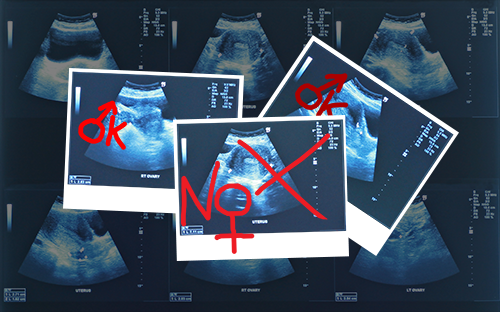Thaïs is a happy, lively and voluntary little girl, a two-year old girl that nothing distinguishes from other little girls, except her walk: “an adorable but quite hesitating walk” which makes her thumb turns outwards. Yet this is this charming walk that revealed to her parents that Thaïs has a degenerative genetic disease: the metachromatic leukodystrophy, which only leaves her some months to live.
This is the fight against the disease of this little “Princess courage” and of her family that tells us her mum, Anne-Dauphine Julliand, in Deux petits pas sur le sable mouillé (1). From its publication in March 2011, this book experienced a real success: because the message of an exceptional force it contains answers the anxieties of a society which only sees absurdity in the suffering and vulnerable life. With her experience of long months of accompaniment of her ill child, Anne-Dauphine gives the key of the secret: “Thaïs presents to us as she is, vulnerable and fragile. […] Of course, those who look that from off can mock, despise, reject this fragility. But those who come close, who look into, who seek to accompany, those see like me that this vulnerability just calls for an answer: love. […] By knowing the extend of damage that would provoke the disease, I wondered: ‘what will remain to her?’ Love. She will have love. The one we receive. And also the one we give. […] we commonly think that a reduced and wounded existence is hardly acceptable. It is undoubtedly truth. When we do not have love. […] Tonight, I dare say it: Thaïs’ life is a treasure. A concentrate of love she gives all around her with generosity. “
No optimism or simplicity in Anne-Dauphine words: page after page, she reminds with decency the breakdown when announcing the disease, the exhaustion her husband and her experimented when Thaïs asked for a particular attention, the burden faced with the evolution of the disease and the unbearable pain of the little girl, the discouragement, the confusion of their older son, Gaspard, unique healthy child of the family. But she also testifies that day after day, the worst can be overcome and that the better can occur. When the terrible news affects them, she decides to live like the children: the present moment. And she promises her daughter, about whom she knows she won‘t be able to walk, talk, see, hear or move: “Sweetie, this won’t avoid us to love you. And to do all we can so that you have a happy life. I promise you my baby: you will have a beautiful life. Not a life like other little girls or like Gaspard, but a life of which you will be proud and where you will never lack of love. “
When it was revealed to the young parents Thaïs’ disease, at the same time we warn them that the child of whom Anne-Dauphine is pregnant has one chance out of four to also be affected: driven by a kind of survival instinct, the couple refuses the prenatal diagnosis and carries out the pregnancy to its full term. The little Azylis was born with the same genetic disease, but will benefit from an early graft of cord blood which will save her life.
Whereas Thaïs’ disease evolves in a sudden manner, the parents, supported by competent physicians and nurses, will do everything to accompany their child to the end, without ever sinking in therapeutic obstinacy. They discover the benefits of palliative care which give the comfort and efficient care to the ill little girl when the pain reaches a paroxysmal level. Down to the smallest details, they will fight until all her dignity is conserved for the little Thaïs, persuaded that we need to “add life to days when we cannot add days to life“. Finally, when the death will be there, they will listen to the little courageous Gaspard who told them: “I am not afraid of death. Everybody will die. Death is not serious. This is sad, but it is not serious“.
This way accompanied, the life of the little girl is not only an event, it becomes really fruitful. From the first moments, a real solidarity network organises around her family: parents, relatives, friends rotate to take care of the child, house the parents during hospitalisation in the provinces, allowing relaxing holidays for the exhausted family, cleaning the house, taking care of Gaspard who jealously looks after his two little ill sisters…Because love is more contagious than the disease. This is maybe why all those who fight near Anne-Dauphine and Loïc leave “upset, moved! But not moved like we could be faced with a sudden shock. […] Moved because they perceived something else beyond the pain and the weakness.” Like this nurse who will tell the mother: “What’s happening here? There is something special in this room. I do not know what it is, but it is particular. We go side by side with the worst and yet we feel good. We feel a lot of sweetness. And even happiness.“
This is how in the middle of the event, the happiness grows little by little: not a superficial and insolent happiness, but a deep happiness made of love, hope and pride. Pride of parents who climb, step by step, their “own Himalaya” and will keep their house united and happy. Pride of a little girl who had, thanks to love she received, get to the end the force and the happiness to play hide-and-seek with her mother and to communicate, beyond any directly sensitive expression, her love to all who came close to her. No summary could replace the reading of this upsetting book which leads us, from tears to laugh, in the heart of the secret of a successful human life. 

-
(1) A.-D. Julliand, Deux petits pas sur le sable mouillé, Paris, Editions des arènes, 2011, 17€

